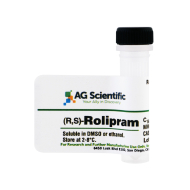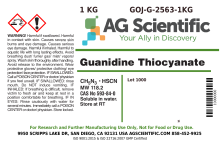Binuclease endonuclease; Serratia marcescens binuclease; Serratia marcescens nuclease; unrestricted endonuclease; Benzonase nuclease
9025-65-4
Glycerol
-20°C
Decontaminase™ (benzonase nuclease) is synthesized from yeast cells with cloned gene encoding genetically engineered Serratia marcescens endonuclease. Decontaminase™ is an ideal alternative to Benzonase. It digests all forms of DNA and RNA, including single and double-stranded, linear, circular, and supercoiled.
Decontaminase™ cleaves phosphodiester bond of nucleic acids. Produces 5' monophosphate terminated oligonucleotides 2-5 bases in length.
Applications:
- Removes nucleic acids in biological products
- Reduces viscosity in cell lysates
- Pharmaceutical industry: eliminate nucleic acid contamination in vaccines and proteins
- Bioanalytical applications: ELISA sample preparation, chromatography, two-dimensional electrophoresis (protein mapping), and footprint analysis for improved resolution and increased sample recovery.
Specifications:
- E.C.: 3.1.30.2
- pH: 6-10, optimum pH 8.0
- Optimum temperature: 37ºC
- Temperature range of enzyme activity: 0-42ºC
- Specific activity: ≥ 1,000 kU / mg protein
- No products of animal origin used, no viral contamination
- Endotoxin free and protease free. Stable under harsh industrial conditions.
- Activators: 1~10 mM Mg2+
Unit Definition:
One unit of Decontaminase™ will digest sonicated salmon sperm DNA to produce acid-soluble oligonucleotides equivalent to a ΔA260nm of 1.0 in 30 minutes at pH 8.0 at 37ºC.
Activity:
- ≥ 20 kU/mg lyophilized powder
- ≥ 250 U/μL buffered aqueous glycerol solution
0.1 lbs
Research or further manufacturing use only, not for food or drug use.



